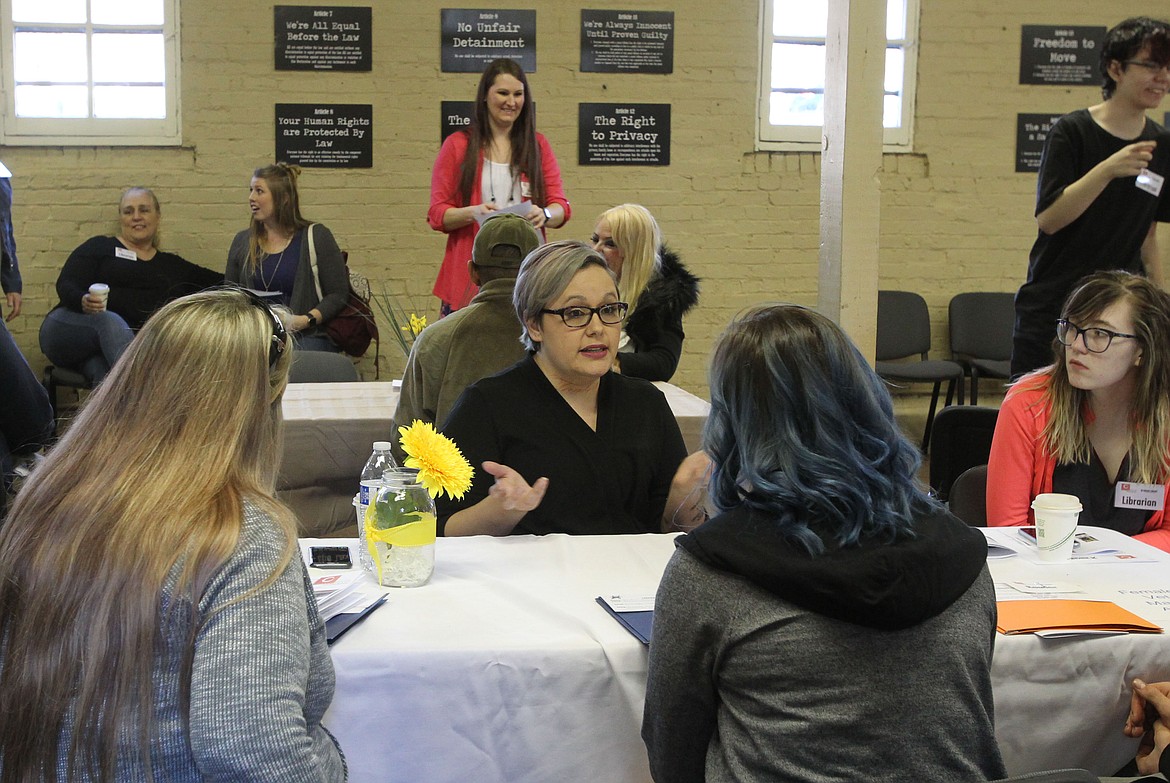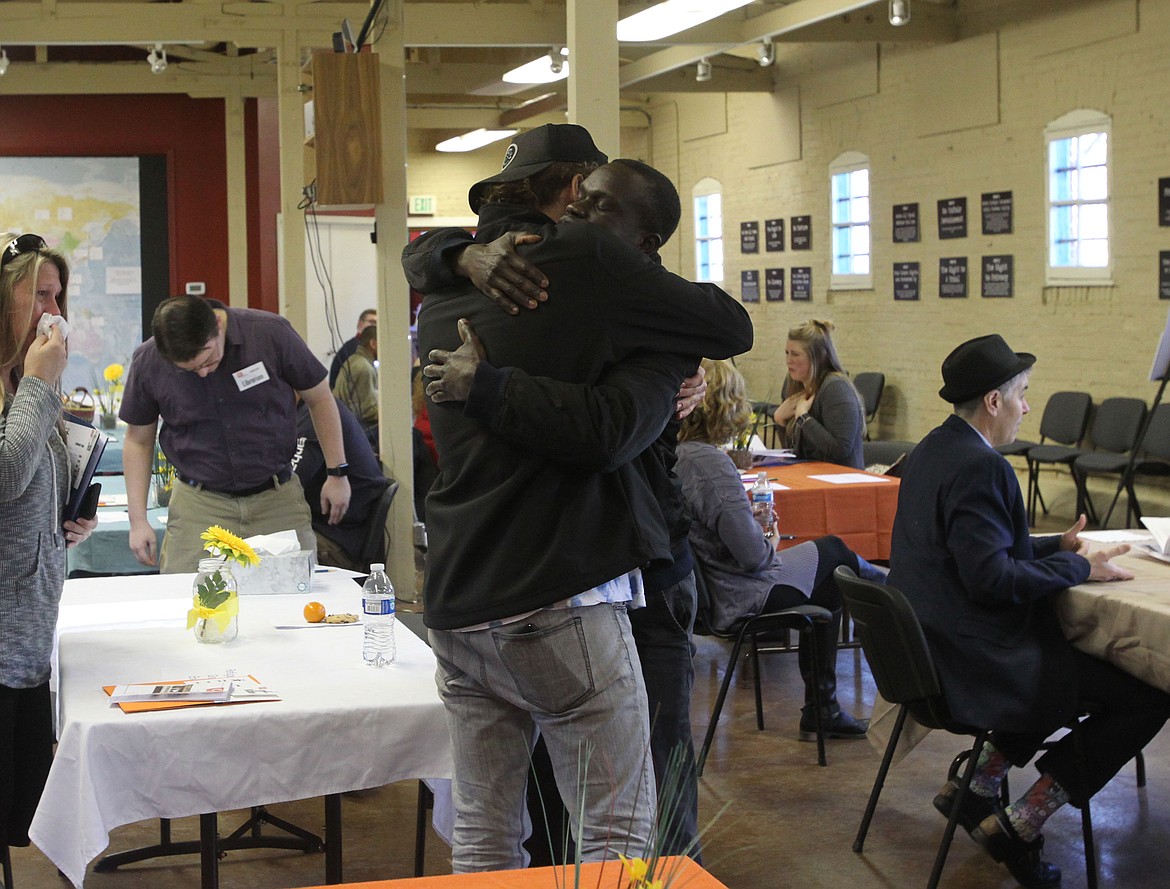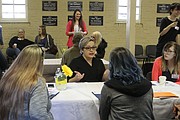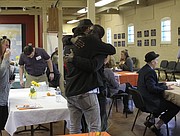It's about our content, not our covers
By DEVIN WEEKS
Staff Writer
COEUR d’ALENE — Book covers were removed and real people were revealed during the Human Library event Saturday in the Human Rights Education Institute.
Conversations that began with timid questions ended with connections, embraces and sometimes tears as the human "books" shared their experiences with "readers" who wanted to know more about lives so seemingly different from their own.
"The thing is, we’re not so much different. We’re all human beings. We all bleed red," said Jackson Lino, a 29-year-old South Sudan refugee who has lived in the U.S. for 17 years. "We all are looking for a safety net, we’re all looking for love, we’re looking for comfort. We’re looking for someone who can walk alongside us and show us the way."
Lino has been in the Inland Northwest almost four years. He said he feels blessed that he was welcomed and accepted into the U.S., but it has not always been easy.
"I in the past have had people come and shout at me and even sometimes (when I'm) riding my bike, they’ll be throwing water bottles or things at me and telling me to get off the road,” he said. "This was in Idaho, but in Boise. But I’m very blessed to see that this community is very open to it and people are very encouraging and supportive and just acknowledge that there are people who are different from them."
Lino's Human Library "book" was titled "Refugee Speaks."
"Refugees have a voice. They have a story to tell, to share with everybody, that is beautiful in its own unique way," he said. "Refugees bring so much to the community that if people can just give them a chance to speak and share, they’re able to bring that beauty."
HREI's inaugural Human Library included several diverse "books" — "Gender Non-Conforming Lesbian," "Transwoman," "A Sober Woman," "Against All Odds," "Female Iraq Veteran Married to A Muslim," "Baha'i: My Spiritual Journey" and "Black Student."
The registered participants, or "readers," sat down at tables with the "books" for 15-minute intervals, asking genuine questions and receiving genuine answers.
"My wife and I experienced an incident of prejudice, not directed toward us, but directed toward the refugees that came into our community," said Peter Miley of Coeur d'Alene. "It inspired us to learn more in an effort to change more, learn more in an effort to affect the community and put forward the agenda of human rights as a principle."
Miley said he did not expect to have such honest conversations with people about the different topics that were presented.
"I never thought I’d have that Q and A and have their guard be dropped so immediately as well as my own, to have genuine conversations that aren’t just fluff," he said. "I’d recommend this to people who don’t agree, who aren’t open to the idea of events like this in general, that if you are hesitant to speak to a transgender person or someone who has a significantly different life path from you, to have that conversation because they will answer you candidly. I appreciate it wholeheartedly."
The Human Library is a worldwide movement and nonprofit that encourages dialogue that challenges stereotypes and prejudices. HREI will host two more this year, on June 16 and in the fall.
"I think it’s important for every community, not just ours,” said Chris Brooks, an event organizer and HREI intern coordinator. "So often, we don’t really know a person’s life story and we think we know, and that sometimes can prohibit us from having open dialogue about people’s diverse life experiences. This gives us an opportunity to really be open to talking to people who we perceive are different from us and make that connection."
Info: www.humanlibrary.org or www.hrei.org





